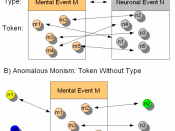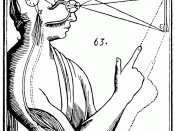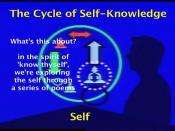Outline the Position of Identity Theory on the Mind-Body Problem. What Problems Are Presented by Identity Theory? Ivancica Jurkovic Abstract Identity theory presents an argument that simplifies the mind-body relationship incredibly: the mind is the brain and vice versa. It appears attractive because it is simple, there is no need to postulate a spiritual substance, and mind body interaction becomes unproblematic. However, numerous objections have been levied against identity theory, ranging from "ÃÂmultiple realizability' objection and charges of Leibniz's Law violations to correlation objection. Although identity theory seems to be viable in some aspects, inability to account for the qualitative properties of consciousness (qualia) makes it incomplete.
The mind-body problem is the problem of explaining how mental states (beliefs, feelings, attitudes) are related to the physical states. It is a philosophical problem that has caused much controversy over the centuries and schools of thought (i.e., dualism, behaviorism) gave and give starkly opposing answers to this question (Crane, 1995).
A particular monistic view of the mind-body problem is identity theory (version of physicalism), which gained ground in the late 1950s. Identity theory was developed to address the shortcomings of behaviorism, which maintains that mental terms designate dispositions to behave in certain ways. The key difference is that behaviorism denies mental states (focusing only on observable behavior), while identity theory acknowledges mental states but identifies them with brain activity (Valentine, 1992). Also, identity theory is an alternative to classical dualism, which holds that minds and mental events are made of spiritual substance. It is committed to the identity thesis, namely, that every mental property is identical with some physical, that is, neurophysiological property. Thus the feeling of anger is just an excitation in the amygdala, and a sense of bliss might just be an overactive hypothalamus (McGhee, 2001).
This essay will...


